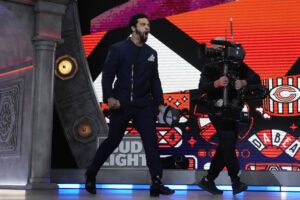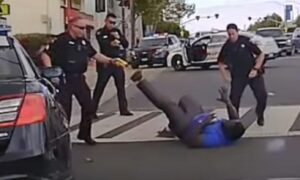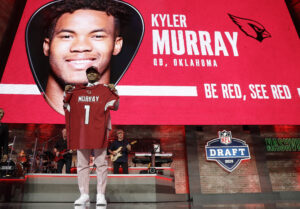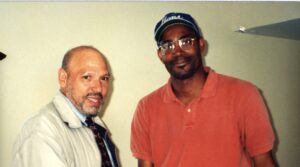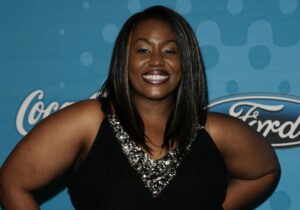In a world where the media and law enforcement often treat cases of missing people of color as inferior to cases of missing white people, NBC’s procedural drama series “Found” aims to help solve this problem. “Found,” which had its series premiere on Oct. 3, is a fictional, scripted program, but many of its episodes are based on or inspired by real-life cases of missing people of color. The show encourages the public to get more involved in helping find underrepresented missing people. “Found” is also a rare broadcast TV network series that has Black women as the showrunners and as several of the directors, writers, and producers.
The central character of “Found” is also a Black woman: Gabrielle “Gabi” Mosely (played by Shanola Hampton) is the recovery specialist founder of Mosely & Associates, her Washington, D.C.-based crisis-management firm that looks for missing people. [Fun fact: “Found” is actually filmed in Atlanta.] Each episode focuses on a different case. Gabi and several of the characters who work with her have personal experiences with crime-related trauma.
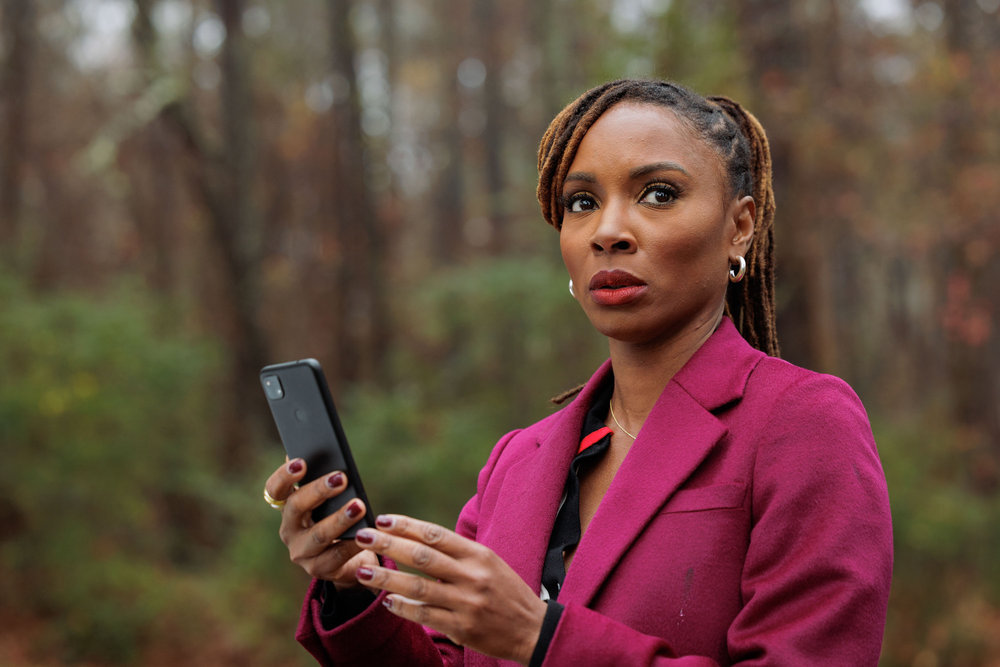
Gabi and her law associate Lacey Quinn (played by Gabrielle Walsh) were both kidnapped as children by the same man: Hugh “Sir” Evans (played by Mark-Paul Gosselaar), who disappeared after Gabi and Lacey escaped, and he was never arrested for his kidnapping crimes. However, Gabi is doling out her own brand of justice: She found Sir and is secretly holding him captive in her basement. Gabi is also using Sir to get criminal psychology profile information from him to help her solve missing-people cases that are believed to be kidnappings.
On Nov. 12, NBC presented a “Found” press conference in West Hollywood, California, with panelists Hampton, Gosselaar, and three principal “Found” executives: co-showrunner/creator Nkechi Okoro Carroll, co-showrunner Sonay Huffman, and executive producer Greg Berlanti. Carroll has said in many interviews, including this press conference, that she was inspired to create “Found” after seeing how mainstream media outlets were overlooking the disappearances of Black females in the Washington, D.C., area in 2014 and 2015 that dominated discussion and concern in the Black community. Here’s what else Carroll, Hampton, and Huffman had to say about their journey with “Found” so far.
Can you talk about the origins of “Found” and how real-life cases inspired you to create the show?
Carroll: I got very frustrated, because I couldn’t understand how young girls who looked like me, their lives could be so devalued. No one cared that that many of them had gone missing. … I started to do a lot of research, because I wanted to figure out why this was happening. It couldn’t be just systemic racism. It couldn’t be just funding issues. It had to be other things at the heart of it.
In doing that research is how I came along [to see] the role that public relations plays in it, the role that media plays in it. And it’s how I started to come up with the character of Gabi Mosely, played by the incomparable Shanola Hampton. We have a show here and a dynamic character, and there might be a way for us to educate the world on what is happening here and encourage people to play a role in making a difference while also entertaining them.
It’s not unlike when I try to get my kids to eat vegetables, and I bury it in a quiche, and I tell them it’s pie. I was like, “How am I going to make people think ‘Found’ is pie?” I wanted something to make “Found” feel like pie for our audience. And that is where the thriller serialized story came from.
Where is the character of Gabi Mosely going in this season?
Carroll: We all know the stereotype of the strong Black woman. There’s a certain version of us that we see on TV that is almost superwoman to a fault. I’m guilty of it in my life. I suffer from “superwoman syndrome.” Just ask my husband. I struggle to ask for help. I’m working on it.
For me, it was important to put a character on TV that was us. She is brilliant and she is smart and she is a force of nature, but she’s also flawed and has this trauma that we thought she worked on and healed, but she hasn’t. It manifests in these little land mines that go off in her when things are triggered—most of the time before she’s even aware. That’s all of us.
I wanted to put a heroine on TV—because she’s still a hero to me—who’s still struggling, who’s still trying to heal, who’s still working through her stuff. She’s also saving lives while doing it and also teaching Sir a lesson.
Can you describe how Shanola Hampton was cast as the star of “Found”?
Carroll: Shanola is also a brilliant director. And I was actually meeting with her for a directing opportunity. She’s amazing. And I’m just staring at her on this Zoom. She must’ve been [thinking], “What is wrong with that woman?”
What I was doing was texting Greg [Berlanti] and my other producers under the desk: “I think I found our Gabi.” After that meeting, I [said to Hampton]: “Can I send you a script?” I kept it very vague, and I sent her the script. I called Greg and the other producers and said, “I’m telling you: She is our Gabi.”
Shanola, what most intrigued you about Gabi when you first read the “Found” pilot script? And what have you loved most about portraying her?
Hampton: I think Nkechi said it best: I love playing characters that are flawed. People can go, “I love her. But wait, she’s got a man in the basement! She can run in heels. But she’s got a man in the basement!”
I had someone say to me today, “Why are you so mean to the man in the basement?” And that’s why I love Gabi Mosely and why I love this show, because it has everybody so torn on whose side they’re on and what moral ground they stand on.
And [“Found”] also sheds light on something that is so important to shed light on. It’s a show I am so blessed to be a part of. It’s literally a once-in-a-lifetime opportunity. … I emailed Nkechi and said, “She’s got a man in the basement! I must play this part!”
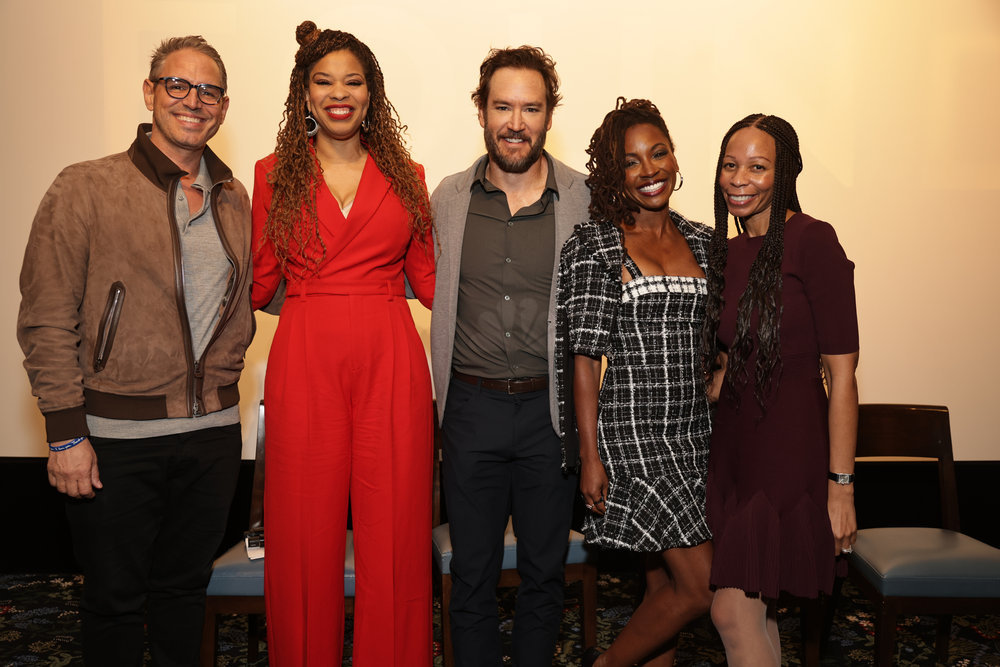
Sonay, can you talk about deciding how much real-life cases are used in the “Found” episodes?
Huffman: Even though we were doing research on the storylines, every single [“Found”] writer, their episode is personal to them—whether it’s them, a family member, or someone they knew. … And that’s what we pulled from, and that’s what we used for the first season. I feel really lucky that they gave so much.
Nkechi, you are the showrunner of “Found” and The CW series “All American” and “All American: Homecoming.” You and Shonda Rhimes (“Grey’s Anatomy,” “Bridgerton,” and “Queen Charlotte: A Bridgerton Story”) are currently the only Black women who are executive producers of three primetime TV series that are on the air in 2023. What does that mean to you?
Carroll: It means everything. I love television. I love TV. I probably watched way too much of it—far more than I let my kids watch. I grew up on three different continents, but the way we kept anchored to the U.S. was through the shows. Whether I was in Cote d’Ivoire or in England, whenever we were in the [United] States, we would record everything and just watch it over and over again.
TV has always been such an important part of my life. And so, the fact that I get to do this for a living is such an incredible blessing. The fact that I have anything on the air is such an incredible blessing.
I don’t know a single person who has fought for and supported my career more than Greg Berlanti. I was 21 years old working at the Federal Reserve, and I had Greg on my vision board because I was obsessed with [Berlanti’s former show] “Dawson’s Creek.” It’s how I learned what a showrunner was.
How do you hope that “Found” will start to move the needle on how missing-person cases are treated for underrepresented and overlooked people?
Hampton: I think it already has started to move the needle. The conversations that I’m hearing from people I never thought are getting it, they’re getting it, and wanting to know what they can do. I think what we wanted to happen is happening in a very real, humbling way. Thanks to Nkechi and that vision and putting it out there, I am so happy that the needle is being moved.
Huffman: I have to echo what Shanola said. Nkechi, she is a visionary. She has stories and arcs for years and years and years. She has such a clear vision for this show that she created. And she set everyone up to succeed: the actors, the writers, the producers.
Nkechi said, “This is what I want to achieve. This is the message I want to send. This is how I want to change the world.” And she’s doing it. That’s what happens when you have a clear vision and someone who’s living their purpose and giving to others the way Nkechi is giving to others.

